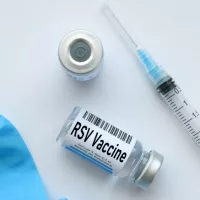
The Food and Drug Administration (“FD”) announced Monday it has approved a drug by which newborns and infants can be protected against respiratory syncytial virus (“RSV”) for an entire season with a single shot. The RSV virus that causes acute respiratory infections and which can be quite serious for some infants, especially those born prematurely.
Nirsevimab – marketed under the brand name Beyfortus – received approval from FDA regulators following three clinical trials that regulators said proved the safety and the efficacy of the vaccine against RSV. The vaccine’s makers, AstraZeneca and Sanofi, said Beyfortus will be available in the United States ahead of the upcoming 2023-24 RSV season following earlier approvals in the European Union, Britain and Canada.
Director of the FDA’s Office of Infectious Diseases, Dr. John Farley, said that the prevention of RSV will likely become much simpler and more effective with the development of the single-shot nirsevimab monoclonal antibody: “Today’s approval addresses the great need for products to help reduce the impact of RSV disease on children, families and the health care system.” Immunization against RSV has mostly been reserved for premature infants deemed at highest risk for serious illness because shots needed to be administered each month throughout the five-month RSV season.
RSV typically starts in the fall and peaks during the winter months. According to the American Academy of Pediatrics, the virus is the leading cause of hospitalization among babies in the United States — approximately 1% to 3% of U.S. children under one year of age are hospitalized each year because of RSV.
Editorial credit: MargJohnsonVA / Shutterstock.com








